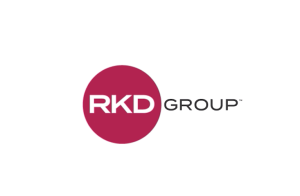The YWCA’s Racial Justice Challenge, an updated version of the education and advocacy program the organization has coordinated for the past dozen years, has generated more than 9,100 participants in at least 28 countries, according to initial post-effort analysis. The program, which concluded in mid-May, spurred conversations about and engagement in national racial justice activities, as well as raised awareness of racism and inequalities in participants’ day-to-day life.
This is the first year the program, which reflects the YWCA’s mission of supporting and uplifting women, was coordinated under the Racial Justice Challenge heading. In 2019, YWCA USA – the national organization – combined elements of its then-eight-year-old Stand Against Racism program with YWCA Greater Cleveland’s 21 Day Racial Equity Challenge. But during programming discussions in advance of the 2023 event, organizers realized that one of this year’s four focuses — disability — was undermined by the program’s “Stand With” branding.
“We heard from our network loud and clear that for the work we are doing it is very ableist to call something a ‘stand’ when not everybody can do that,” YWCA USA’s Vice President of Strategy, Impact and Evaluation Alphie Rodriguez told The NonProfit Times. “It tied in perfectly as a good opportunity for learning from the beginning, before the challenge even started,” Rodriguez added. “We had to notify everyone that we changed the name, and why we were changing the name.”
Programming and focuses change every year. This year, the first week’s focus on disability was followed by housing, music and mental health. “We typically have one week, like the music week, that is a little lighter. It looks at [the issues] in a different light than the heavier topics,” Rodriguez said. The music week focus allowed the organization to draw on YWCA Greater Cleveland’s previous work with the Rock and Roll Hall of Fame.
“There was actually a conversation in the chat where someone said, ‘I’m surprised you’re working with the Rock and Roll Hall of Fame, because they have been known not to be supportive or lift up women,’” Rodriguez said. As part of the conversation, YWCA leaders and others pointed out that the Hall of Fame management was, in addition to supporting the effort, there to learn and do better, Rodriguez added. She did not disclose the nature of the Rock and Roll Hall of Fame’s support.
“For this year’s Racial Justice Challenge, we moved to a new platform which is more engaging,” Rodriguez said. “We wanted to have something that waws more interactive and allowed people the opportunity to have deeper conversations with each other. There is an app, and we moved to a new system that made it more interactive and easier to navigate.”
The program primarily consists of online content, such as blog posts, videos, discussion forums and podcasts, which are released Mondays through Fridays during a four-week period, with a one-day wrap-up at the end. The decision to release content during the work week reflects both the original design of the YWCA Greater Cleveland’s program, as well as the hope that the concerns would be brought into participants’ workplaces.
Participant feedback has been very encouraging: 80% of those surveyed rated the content as either “excellent” or “very good.” In addition, Rodriguez cherishes some of the individual feedback she has received from participants.
“Someone sent me a message in private chat that said, ‘I am going to review the laws in my state to make sure there aren’t any loopholes regarding disability rights’,” Rodriguez said. “That’s huge.”
For the most part, the YWCA USA has not incorporated fundraising into the programming, although some individual YWCAs, each of which is an independent 501(c)(3), have built fundraising efforts, such as raffles or appeals, around the content. “Each [independent YWCA] does the work their community needs,” Rodriguez said. “They’re all working to eliminate racism and empower women, but you might go to once YWCA and they do housing, they do domestic and sexual assault. You go to another one, and they do afterschool and daycare, and domestic violence services.”
The plan is to do a follow-up survey in six months, which will ask participants deeper questions about the impact of the programming. Leaders are already planning for next year’s topics, which might include new concerns and issues, such as racial equity in sports.
The YWCA USA’s Racial Justice Challenge content is still available at https://get-involved-ywca.mn.co/spaces/10377332/content








